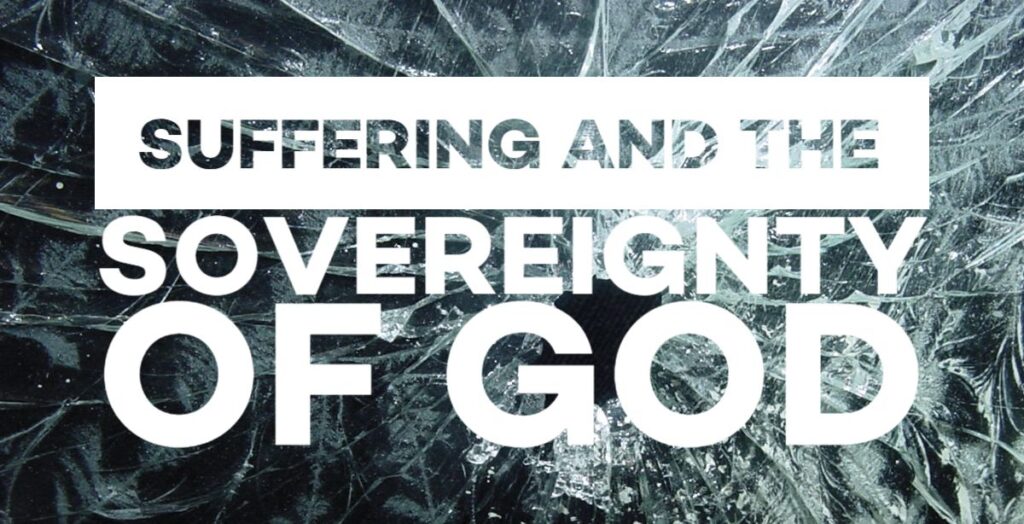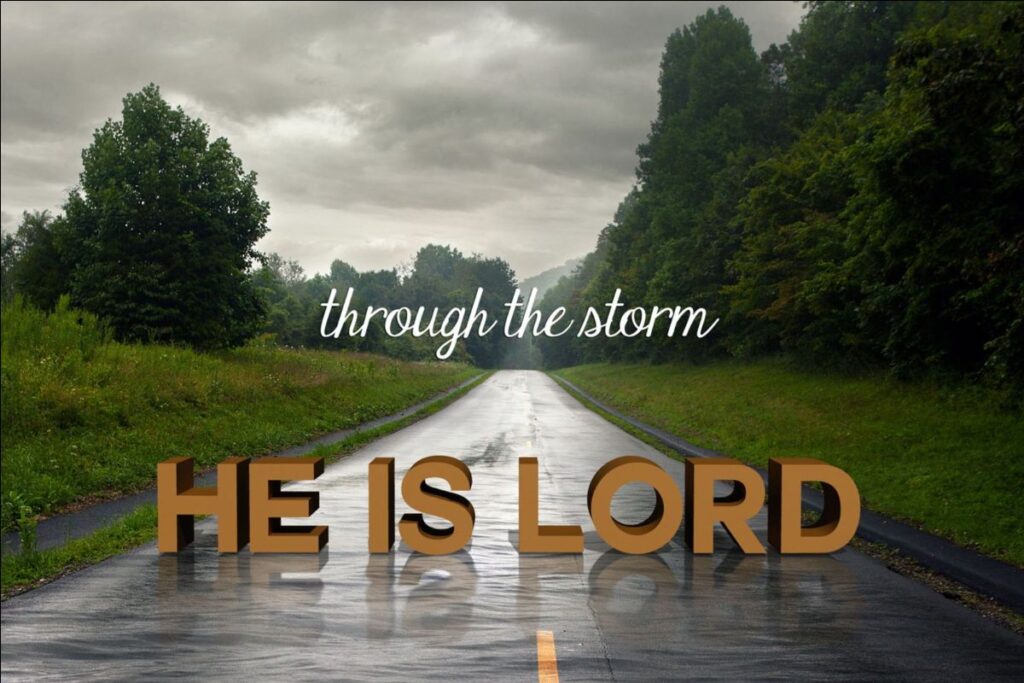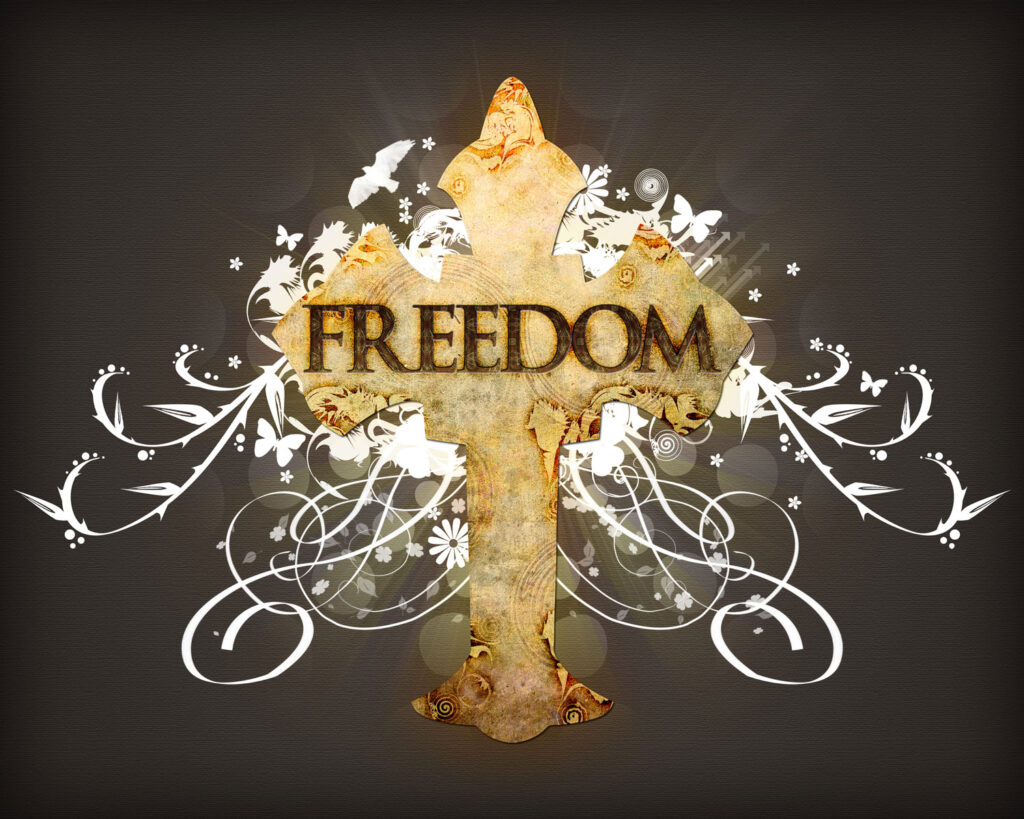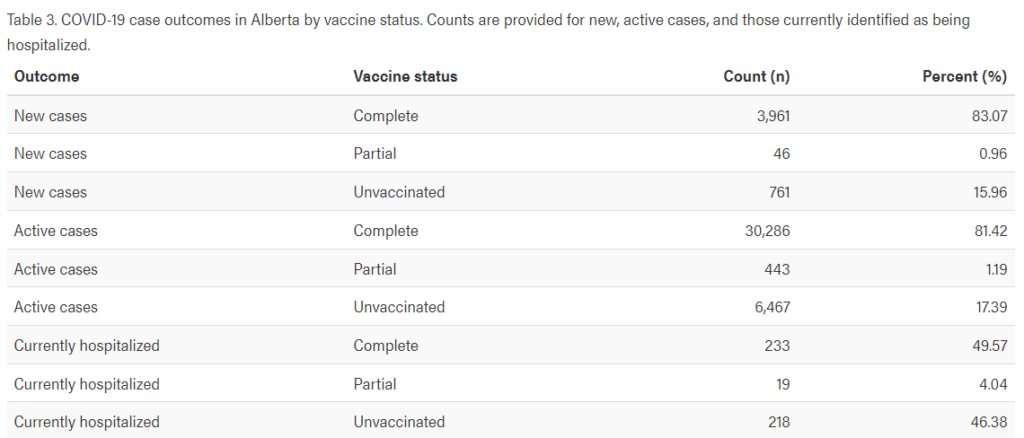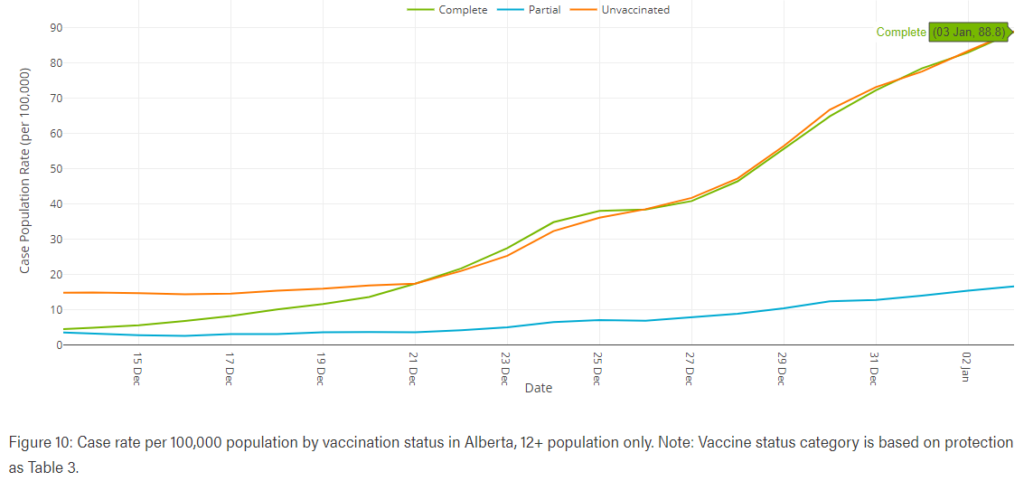It was one year ago today that I was arrested a second time and jailed for 18 days for failing to comply with provincial COVID restrictions. Legal matters are still being sorted, but I wanted to share a summary argument that sets forth the Scriptural justification for how we handled COVID.
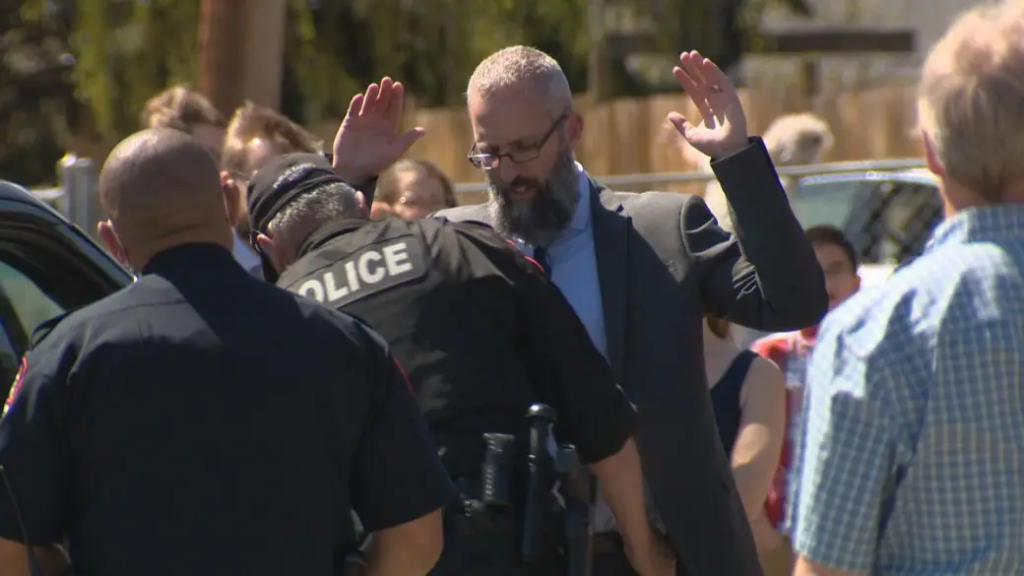
I drafted the following document for my appearance in court to answer charges and fines levied against me and our church. It seeks to make clear why we were unable to comply with all COVID mandates while we sought to maintain a respectful and submissive posture toward our governing authorities in the province of Alberta. It has four sections; it sets forth (1) an argument on COVID mandates in general, (2) on masking, (3) on capacity limits, and (4) on physical distancing. May it provide clarity and prepare us for future challenges.
This document summarizes many articles on the subject written by myself and others, along with parts of the court submission of John MacArthur at Grace Community Church in California (which you can find here).
On COVID Mandates and the Church
1. Jesus is King over all the earth, including all kings, powers, and nations (Matt 28:18; Ps 2; Rev 1:5; Col 1:16; 1 Tim 6:15; Rev 17:14; 19:16). He is the supreme authority in all matters of life, health, society, law, family, and faith. Our Charter recognizes this in the preamble as this is the heritage of our nation.
2. With Christ as head over all, his law rules over all (also acknowledged in the preamble of our Charter). Everyone will be held accountable to God’s law (Rom 3:19).
3. Our civil government including our mayor, premier, and prime minister all answer to God as his servants (Rom 13:1–4). They are his deacons, appointed to carry out justice in this nation in accordance with the will of God. They are called to protect the innocent and punish the wicked.
4. Christ is Lord over all and head over the church (Eph 1:20–21). There are no earthly (i.e. civic) magistrates between the church and Jesus. The church is a distinct institution, separate from the state in its governance, ordinances, and worship.
5. The church, being free from earthly rule under the lordship of Jesus, elects its own leaders—called elders or pastors—who lead, teach, guide, and care for the church (Acts 6:5, 20:28; Tit 1:5). They are called to protect the worship, teaching, and ordinances of the church to ensure fidelity to the word in submission to Christ.
6. We are called to honor and obey the governing authorities of the state (Rom 13:1–7; 1 Pet 2:13–17), the church (Heb 13:17), and the home (Eph 5:22–33).
7. Defiance to earthly authorities (whether in the state, church, or home) out of greater loyalty and obedience to Christ can only be justified if they (1) forbid what God commands; (2) command what God forbids; or (3) command what is not theirs to command (Daniel 3, 6, Acts 5:29).
8. The church is commanded to gather (and not neglect the assembling of ourselves together) especially as the Day draws nearer (Heb 10:25). We are commanded to practice hospitality (1 Pet 4:9; Rom 12:13); sing to one another (Eph 5:19; Col 3:16), celebrate the Lord’s Supper (1 Cor 11:17–34), and care for the elderly, widows, and orphans (Jas 1:27). These are direct and divine commands that cannot be defied by the faithful.
9. We maintain that COVID mandates in Alberta forbade what God commanded and the government ruled outside their jurisdiction (reaching in to regulate life in the church and home), and should rightly be resisted in obedience to Christ, the Lord of all.
10. These convictions are in keeping with our church constitution, adopted at our founding in 1960, which states, “We believe that civil government is of divine appointment for the interest and good order of society; that the magistrates are to be prayed for, conscientiously honoured and obeyed except only in the things opposed to the will of our Lord Jesus Christ, Who is the only Lord of the conscience and Prince of the Kings of the earth” (Article 2.14).
On Mandatory Masking
The grounds for a religious exemption preventing enforcement of masks at services at Fairview Baptist Church.
1. Fairview Baptist Church regards the wearing of masks in worship first of all as a matter of conscience—and since we are forbidden by the teaching of Christ not to make extra-biblical religious rules that bind men’s consciences (Matthew 23:1-7; 15:1-9), we neither mandate nor forbid the wearing of masks in worship. See http://www.fairviewbaptistchurch.ca/face-masks-are-not-mandatory-at-fairview/ for an example.
2. Our Statement of Faith is clear when it says that the Lord Jesus Christ “is the only Lord of the conscience.” It is therefore wrong for me, as pastor, to enforce or mandate face coverings as part of worship and allow the commands of men to regulate or restrict the worship of God.
3. Veils and face coverings have profound religious significance in many world religions. In addition, it cannot be denied that COVID masks have become a very political symbol. In devotion to God, many in our church do not wish to associate either with other world religions nor the secular credo of our society.
4. Face coverings hide or veil our identity and therefore our humanity. The Bible states we are made in the image of God (Genesis 1:27) and our face, more than anything else, conveys our identity. A quick flip through any photo album or year book is more than sufficient to prove this point. Therefore, our face, unveiled, is a key element in true worship as we gather coram deo—before the face of God.
5. In addition, not just before God but with one another, one of the distinctives of Christian worship is face-to-face fellowship. The Bible uses the term “face to face” 17 times to describe this closeness in sharing life together. The importance of face-to-face intimacy within the church is stressed repeatedly. Paul writes, “We . . . were all the more eager with great desire to see your face” (1 Thessalonians 2:17). “We night and day keep praying most earnestly that we may see your face” (3:10). The apostle John writes, “I hope to come to you and speak face to face, so that your joy may be made full” (2 John 12). “I hope to see you shortly, and we will speak face to face” (3 John 14).
6. Koinonia is the Greek word in the Bible to describe fellowship. The word conveys the idea of community, close association, and intimate social contact. In keeping with this, the command “Greet one another with a holy kiss” is repeated four times in the Pauline epistles (Romans 16:16; 1 Corinthians 16:20; 2 Corinthians 13:12; 1 Thessalonians 5:22). This fellowship is essential to the local church.
7. Worship, in particular, is best seen as an open-face discipline. Covering the face is a symbol of disgrace or shame (Jeremiah 51:51; Job 40:4). Concealing one’s mouth while praising God suppresses the visible expression of worship. The Psalms’ calls to worship are filled with the words “tongue,” “lips,” and “mouth.” “Sing aloud unto God our strength: make a joyful noise” (Psalm 81:1). Wholehearted worship cannot be sung as intended—unrestrained and unmuted—from behind a state-mandated face covering. We see “the Light of the knowledge of the glory of God in the face of Christ” (2 Corinthians 4:6), and our faces were designed by him to reflect that glory back to heaven in uninhibited praise as we are being renewed in his image and likeness as we behold him with unveiled face (2 Corinthians 3:18).
8. It is important to note that these convictions are not borne out of political motivations, protest, or scientific skepticism. We are not “anti-maskers.” We do not want to shame any person who chooses to wear a mask to our gatherings. We do not want to bind anyone’s conscience with manmade restrictions. People in the church are free to wear masks if they choose. But people who share the views articulated above are likewise free to worship, sing, pray, and proclaim God’s Word without a face covering—even if that goes against the vacillating, sometimes arbitrary, and frequently heavy-handed dictates of government officials. It is simply not the church’s duty to enforce civic orders that restrict or regulate the worship of the church.
On Capacity Limits
The grounds for religious exemption preventing enforcement of capacity limits at services at Fairview Baptist Church.
1. The Bible is clear that ecclesiastical matters are entrusted not to civic leaders, but to pastors and deacons (Acts 6:5, 20:28; Tit 1:5; Heb 13:17). Under the lordship of Christ, he has delegated authority in different spheres or jurisdictions. He has not given the civil magistrate the jurisdiction over the church to order or regulate its worship (Rom 13:1–5).
2. Our Statement of Faith confirms this belief: “We believe that a church is a company of baptized believers, called out from the world, separated unto the Lord Jesus, voluntarily associated for the ministry of the Word, the mutual edification of its members, the propagation of the faith and the observance of the ordinances. We believe it is a sovereign, independent body, exercising its own divinely awarded gifts, precepts and privileges under the Lordship of Christ, the Head of the Church. We believe that its leaders are pastors, elders and deacons.”
3. To limit capacity to 30% or 15% is to fundamentally alter that gathering of the church such that it is impossible to gather as the church. The church is a family of faith, a body of believers, that cannot be separated and rightly be called the church.
4. Of course some have promoted alternative ways to “do church” but these are pastor-centric rather than church-centric. Sunday worship becomes a performance or TED talk where people consume what the pastor says with little to no interaction with the people (i.e., the church). These alternatives contravene the very definition of church (Gr. ekklesia) which is an assembly.
5. The church gathering is more than listening to a message or hearing Christian worship. It involves fellowship, and the communion of the Lord’s Supper (1 Cor 11 mentions “when you come together” five times when instructions concerning the Supper are given to the church). It involves singing songs to one another (Eph 5:19; Col 3:16), and the closer we get to Christ’s return, the more we are encouraged to gather together and spur each other on (Heb 10:24–25). In fact, we are commanded not to neglect the assembling of ourselves together (Heb 10:25).
6. Having just a portion of the congregation assembled or online is akin to having an online marriage or raising children in small, divided groups—it fundamentally alters the very nature of the church. In keeping with this, our church has resisted multi-service or multi-site models as unfaithful to the meaning of the church as a united assembly or family of God.
7. There is a spiritual gift that is shared when we gather together physically. Paul writes in Romans 1:11–12, “For I long to see you, that I may impart to you some spiritual gift to strengthen you—that is, that we may be mutually encouraged by each other’s faith, both yours and mine.” There is something that letter writing could not perform that required a physical presence of the gathered assembly.
8. Our church sought to honor those who were conscience-bound to follow all mandates. However, we will always welcome all, regardless of their convictions (Romans 14:1).We would never close our doors to those who came to worship the one, true God (Romans 15:7). To welcome the stranger in Christian love, is to welcome Christ himself (Matthew 25:35). Our church will welcome all and speak the truth of Christ to all who come to hear.
On Physical Distancing Requirements
The grounds for a religious exemption preventing enforcement of physical distancing at services at Fairview Baptist Church.
1. There are numerous “one another” commands in Scripture that cannot be performed if the body is missing, divided, or restricted from close contact. These include wash one another’s feet (John 13:14); love one another (John 13:34–35; 15:12, 17; Romans 12:10; 1 Thessalonians 3:12); members on of another (Romans 12:5); outdo one another in showing honor (Romans 12:10); live in harmony with one another (Romans 12:16; 15:5); welcome one another (Romans 15:7); instruct one another (Romans 15:14); greet one another with a holy kiss (Romans 16:16; 1 Corinthians 16:20; 2 Corinthians 13:2; 1 Peter 5:14); have the same care for one another (1 Corinthians 12:25); comfort one another (2 Corinthians 13:11); agree with one another (2 Corinthians 13:11); serve one another (Galatians 5:13; 1 Peter 4:10); bear one another’s burdens (Galatians 6:2); bear with one another in love (Ephesians 4:2); speak truth with your neighbor for we are members one of another (Ephesians 4:25); be kind to one another (Ephesians 4:32); forgive one another (Ephesians 4:32); address one another in psalms, hymns, and spiritual songs (Ephesians 5:19); submit to one another (Ephesians 5:21); teach and admonish one another (Colossians 3:16; Hebrews 3:13); encourage one another with these words (1 Thessalonians 4:18, 5:11); seek to do good to one another (1 Thessalonians 5:15); stir up one another to love and good works (Hebrews 10:24); do not neglecting to meet together, as is the habit of some, but encourage one another [to gather] (Hebrews 10:25); confess your sins to one another (James 5:16); pray for one another (James 5:16); and show hospitality to one another (1 Peter 4:9).
2. As an elder, there is a biblical qualification for me to practice hospitality (1 Timothy 3:2; Titus 1:8). This includes having church members in my home (1 Peter 4:9) and strangers are to be welcomed too (Hebrew 13:2). Forced to be derelict in my duties before God or in non-compliance with health mandates, I will always choose the latter in devotion to God and in faithfulness to my calling.
3. In the installation of elders, we “lay on hands” (1 Timothy 4:14; 5:22). This necessary physical act carries important spiritual meaning in the commissioning of leaders in the church.
4. In the Scriptures, the sick are called to summon the elders of the church to come and lay hands on them and pray over them (James 5:14). We are commanded to care for the sick, the widowed, the orphan, and those in need rather than isolate from them (James 1:27).
5. There are two ordinances commanded by our Lord, baptism and the Lord’s Supper—also known as communion or the Eucharist (Matthew 28:19; 1 Corinthians 11:17–34). These both require close contact in their proper administration.
6. The Lord’s supper is commanded “when you come together” (1 Corinthians 11:17, 18, 20, 33, 34). As such, we celebrate this ordinance each week. It is akin to a covenant renewal like the Passover meal for the Jews where we are reminded of Christ being our Passover lamb (1 Corinthians 5:7). As such, it is an important practice to celebrate together as a covenant community or family of faith.
7. Greeting one another with a holy kiss is a biblical command (Romans 16:16; 1 Corinthians 16:20; 2 Corinthians 13:2; 1 Peter 5:14) that may find different cultural expression in our day but would still involve close, familial contact, and appropriate displays of affection and union. I could not, in good conscience, undermine or neuter this command among the church to restrict handshakes, hugs, or close contact for brothers and sisters in the Lord.
8. It is wholly inappropriate for me—and beyond the mandate given to me by God—to enforce physical separation between members of the body whom God has joined together to be one. What God has joined together let no man separate (Matthew 19:6).
9. Our church sought to show grace by handling physical distancing as a matter of conscience. We sought to respect one another’s convictions on the issue rather than mandate compliance in conformity with the secular consensus. We offered seating and areas where people could congregate at a greater distance if so desired.

